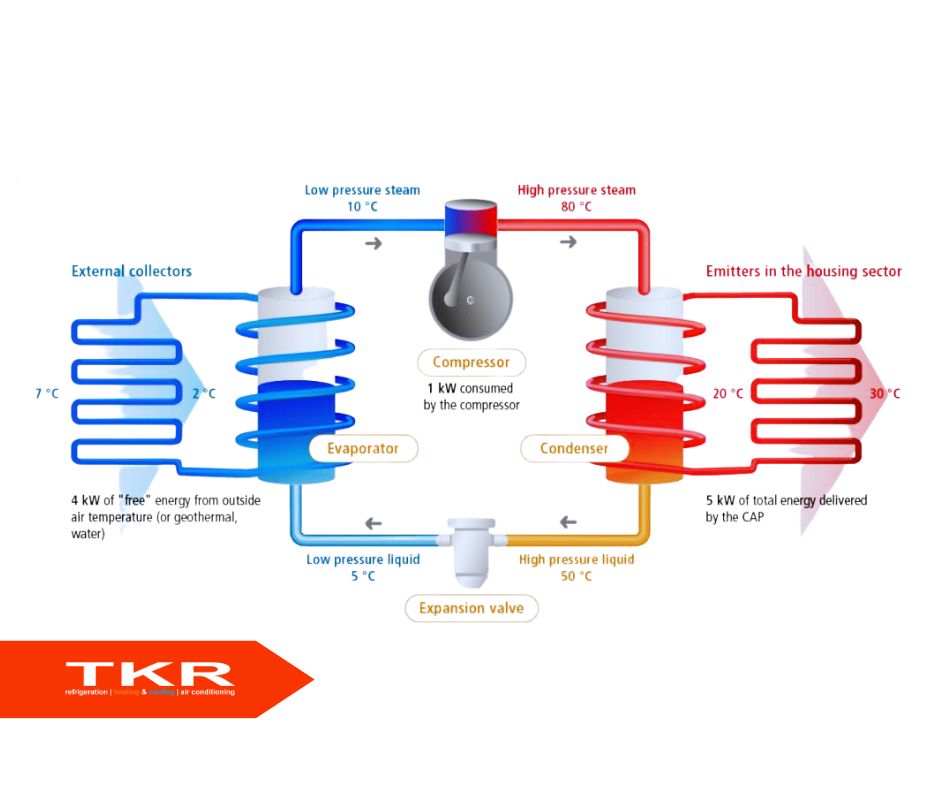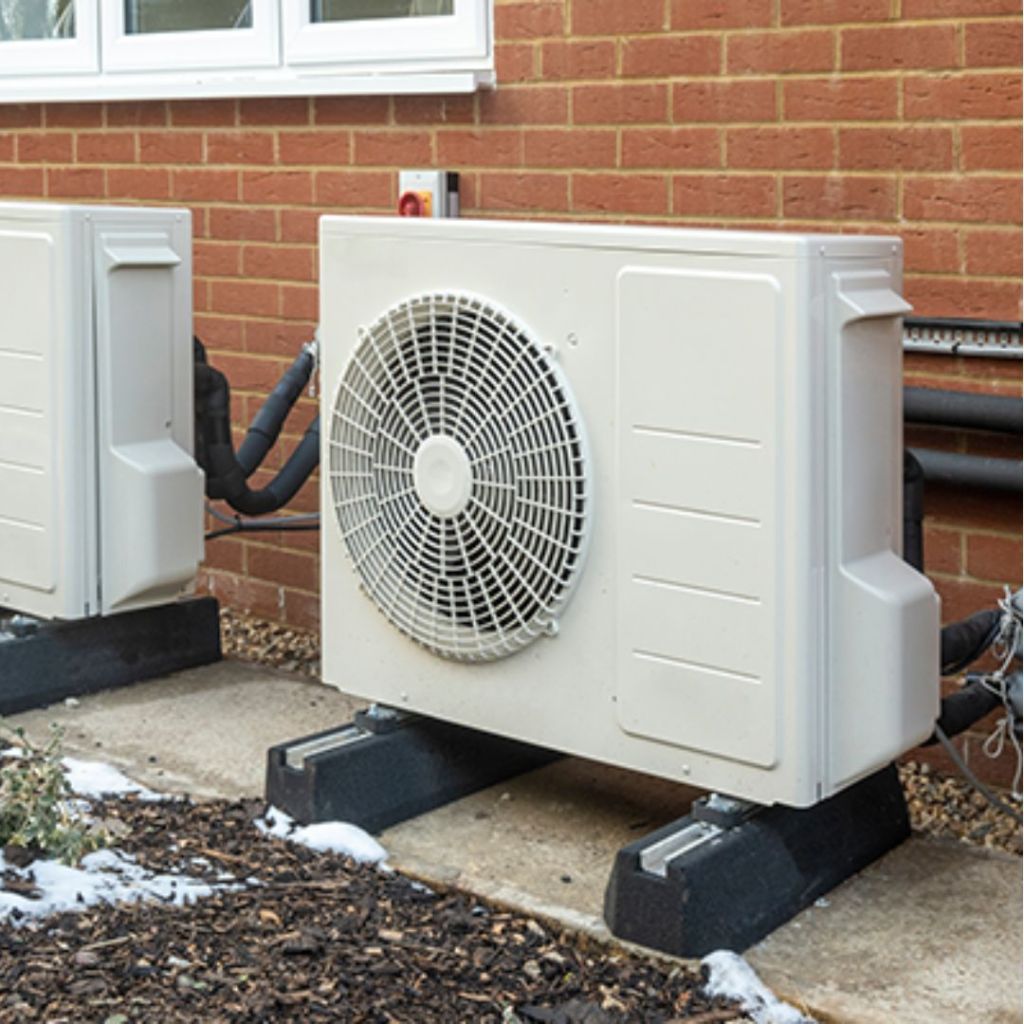In a world where sustainability and energy efficiency have taken center stage, innovations in heating and cooling technologies have become pivotal. One such innovation that has gained significant attention is the heat pump air conditioner. This comprehensive guide will take you through the ins and outs of heat pump air conditioning, shedding light on its benefits, working principles, and the eco-friendly options available in the form of air source heat pumps.

What is Heat Pump Air Conditioning?
Heat pump air conditioning is a versatile and energy-efficient technology that serves both heating and cooling purposes. Unlike traditional HVAC systems that use separate units for heating and cooling, heat pump systems can handle both functions with a single device. They are particularly well-suited for regions with moderate climates and have gained immense popularity for their ability to provide year-round comfort.
The Benefits of Heat Pump Air Conditioning
Understanding the benefits of heat pump air conditioning is essential to appreciate its value and consider it as a viable option for your home or business. Here are some of the key advantages:
Energy Efficiency: Heat pump systems are renowned for their energy efficiency. Instead of generating heat or cold air, they transfer it from one place to another, consuming significantly less electricity than traditional heating or cooling systems. This translates to lower energy bills and reduced carbon emissions.
Year-Round Comfort: Heat pumps are versatile, capable of both heating and cooling. They can effectively keep your indoor environment comfortable in all seasons, eliminating the need for separate heating and cooling systems.
Environmentally Friendly: Heat pumps are considered eco-friendly as they produce fewer greenhouse gas emissions compared to conventional systems. They also reduce the overall demand for fossil fuels, contributing to a greener planet.
Cost Savings: While the initial cost of installing a heat pump system can be higher than traditional systems, the long-term savings in energy bills can offset the initial investment. In some cases, there are government incentives and rebates available to further reduce the upfront cost.
Quiet Operation: Heat pumps are known for their quiet operation. They produce minimal noise, making them an excellent choice for maintaining a peaceful and comfortable indoor environment.
Zoning Options: Many heat pump systems offer zoning capabilities, allowing you to control the temperature in different areas of your home independently. This can lead to further energy savings by only conditioning the spaces that are in use.
Increased Property Value: Installing a heat pump system can increase the resale value of your property. Potential buyers are often attracted to energy-efficient and eco-friendly features.

How Do Heat Pumps Work?
To fully grasp the functionality of a heat pump air conditioner, it’s essential to understand the basic principles behind its operation.
At its core, a heat pump consists of four key components: an evaporator, a compressor, a condenser, and an expansion valve. These components work in tandem to transfer heat from one location to another. Here’s how it works:
- Evaporation: The heat pump system begins by absorbing heat from the air or ground source using the evaporator coil. In cooling mode, it extracts heat from indoor air, and in heating mode, it draws heat from the outdoor environment.
- Compression: The refrigerant containing the absorbed heat is then compressed by the compressor, increasing its temperature and pressure. This high-energy, high-temperature gas is then pumped to the condenser.
- Condensation: In the condenser coil, the compressed refrigerant releases its heat to the indoor space (in heating mode) or to the outdoor environment (in cooling mode). As a result, the indoor air becomes warmer or cooler as needed.
- Expansion: After releasing its heat, the refrigerant is expanded through an expansion valve, causing it to cool down and return to its initial state. It then repeats the cycle by flowing back to the evaporator to start the process again.
The remarkable aspect of heat pump systems is their ability to reverse the refrigeration cycle. In the winter, they extract heat from the outdoor air or ground source and release it indoors, providing warmth. In the summer, they do the opposite, expelling heat from indoors and cooling the interior space.
Discover Our Eco-Friendly Air Source Heat Pumps
Now that we’ve explored the fundamentals of heat pump air conditioning, it’s time to delve into the eco-friendly options available, particularly air source heat pumps (ASHPs). ASHPs are a popular choice for both residential and commercial applications due to their energy efficiency and environmentally conscious design.
What Are Air Source Heat Pumps?
Air source heat pumps are a type of heat pump system that extract heat from the outdoor air and transfer it indoors for heating purposes. They are an excellent choice for regions with moderate climates, making them ideal for many parts of the world. ASHPs can provide efficient heating even when the outdoor temperature drops below freezing, thanks to advancements in technology.

Key Features of Air Source Heat Pumps
- Energy Efficiency: ASHPs are highly energy-efficient, typically providing three to four units of heat for every unit of electricity consumed. This exceptional efficiency can result in substantial energy savings.
- Environmentally Friendly: By relying on the heat naturally present in the outdoor air, ASHPs reduce the need for fossil fuels or other energy sources. This significantly lowers carbon emissions and contributes to a greener environment.
- Year-Round Functionality: Air source heat pumps can operate in both heating and cooling modes, ensuring year-round comfort. This versatility eliminates the need for separate heating and cooling systems.
- Quiet Operation: ASHPs are known for their quiet operation, making them an unobtrusive addition to your home or business.
- Zoning Capabilities: Many ASHPs offer zoning options, allowing you to control the temperature in different areas of your space independently. This customization can enhance comfort and energy efficiency.
- Government Incentives: In various regions, government incentives and rebates are available to encourage the adoption of air source heat pumps. These incentives can help offset the initial cost of installation.
Choosing the Right Air Source Heat Pump
When selecting an air source heat pump, several factors should be considered:
Climate: Consider your local climate and how well the ASHP will perform in both heating and cooling modes. Some models are better suited for colder climates than others.
Size: Ensure that the ASHP is appropriately sized for your space. An undersized unit may struggle to maintain the desired temperature, while an oversized one can be inefficient.
Efficiency Rating: Look for ASHPs with high Seasonal Energy Efficiency Ratio (SEER) and Heating Seasonal Performance Factor (HSPF) ratings, as these indicate better efficiency.
Brand and Warranty: Research reputable brands and check for warranties, as they can provide peace of mind regarding the longevity and reliability of your ASHP.
Installation: Proper installation by qualified professionals is crucial for optimal performance. Ensure that the installation is carried out correctly.
Maintenance: Regular maintenance is essential to keep your ASHP operating efficiently. Follow the manufacturer’s guidelines and schedule professional maintenance when needed.
Conclusion
Heat pump air conditioning, especially air source heat pumps, represents a sustainable and energy-efficient solution for your heating and cooling needs. With their numerous benefits, including energy savings, year-round comfort, and eco-friendliness, they are becoming increasingly popular in today’s world. When considering a heat pump system, be sure to assess your specific needs.
